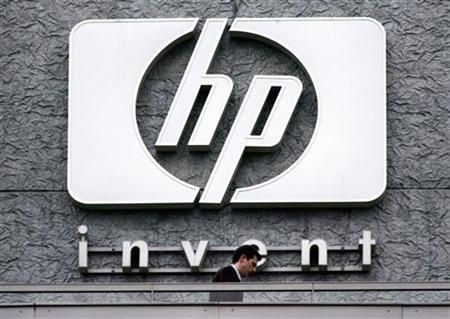Hewlett-Packard: A Crisis in Leadership and Strategy
ANALYSIS

The chaos surrounding Hewlett-Packard (NYSE: HPQ) deepened on Wednesday after reports emerged that the board of directors may remove the company’s chief executive officer Leo Apotheker after less than a year at the job and perhaps replace him with Meg Whitman, the former chief executive of eBay (Nasdaq: EBAY) and current board member.
David B. Smith, chief investment officer of Rockland Trust Investment Management Group, in Rockland, Mass., told International Business Times that he was not surprised by the apparent end of Apotheker’s career at HP, although he was somewhat taken aback by the short length of his reign.
“Leo Apotheker failed miserably at HP,” Smith said. “His term at the company was marked by bad decision after bad decision.”
Indeed, during his brief stay at HP, Apotheker decided to dramatically shift the company’s strategy – among other things, he dropped the TouchPad tablet product line; and planned to spin-off the personal computer (PC) business and focus on the higher-margin enterprise business which involves software, services and servers.
He also made a controversial (and very expensive) $10-billion acquisition of British information management software developer Autonomy Corp.
“He overpaid for what is essentially a second-tier software company,” Smith said.
Apotheker also repeatedly cut sales forecasts and backtracked on a pledge to integrate Palm’s webOS software into a suite of other HP products.
“When he came in, he said he would ramp up research & development (R&D) spending,” Smith noted. “Then, he backtracked on that and decided to cut back on such expenditures. This was typical of the kind of lack of vision and lack of clear strategy he has shown. These kinds of things cause a lot of confusion and don’t do much for investor confidence.”
The writing may have been on the wall for Apotheker after the company posted less-than-stellar third –quarter results, while share prices continued their relentless plunge. Since mid-February, HP stock has lost more than half its value.
Peter Misek, an analyst at Jefferies & Co., told CNBC: “Shareholders are beside themselves over the decline in share price, the company missing targets, the spinout of the PC business in such a haphazard way and the debacle with web OS.”
While Apotheker’s erratic and confusing reign as company boss has elicited much criticism and groans from investors and shareholders, the company’s board has also been heavily questioned.
There seems to be something amiss with the culture at HP. Over the past six years, they have witnessed the awkward and/or forced departures of two high-profile chief executives – Mark Hurd and Carly Fiorina – over unusual circumstances.
Indeed, some analysts are now puzzled by the apparent move to fire Apotheker and how culpable the board might be in the company’s ongoing problems.
Charles King, an analyst at Pund-IT, told Computerworld: What bugs me a little bit about this [is that] Apotheker was [not] making these announcements in a vacuum. The board had to be deeply involved.
King added that Apotheker might become a whipping boy for the board that was just as complicit in most of the decisions.”
In reaction to the development, hedge fund manager Eric Jackson wrote on his Twitter account: If [HP] fires Apotheker, cancels Autonomy deal, and keeps PC division, it'll be great for the stock -- and every director should be arrested,
Rob Enderle, an analyst at the Enderle Group, said that removing Apotheker might cause further disruptions to a company that is already in the throes of massive changes already.
When you change a board you'll likely change what it thinks the company should have in a CEO, Enderle told Computerworld.
Companies in HP's space are required to be extremely stable and reliable. Changing the CEO spot destroys the image that you can trust the direction presented by the company or the promises of its executives.
Questions have also arisen as to why HP hired Apotheker in the first place.
Smith indicated that Apotheker may have been the wrong man for the job from the very beginning.
“He was the chief executive of a European software company called SAP and his term there was not very distinguished,” Smith said.
“We were told that after Mark Hurd was moved out, the company was going to get a new high-profile selection for CEO; so it was a head-scratcher when they picked Apotheker for what was ostensibly a prestigious position. I don’t think he had the track record for the HP job.”
The New York Times reported on Thursday that when the HP board voted Apotheker to replace Hurd, most directors had never even heard of him.
The HP board was apparently rife with animosities and infighting.
One unnamed board member told the NY Times: “I admit it was highly unusual. But we were just too exhausted from all the infighting.”
And what about the presumptive successor Meg Whitman, the failed candidate for California governor?
“Meg Whitman – it’s probably the right move,” Misek told CNBC. “She’s an Internet pioneer – and the future of HP is based on embracing the Internet fully with their devices -- like Apple has. She would be a great interim step – and certainly we wouldn’t expect any violent surprises from her.
Smith concurs that Whitman would make a good interim CEO -- but she is definitely not the long-term answer.
“Her background is in the consumer space, not technology,” he said. “There are very different types of businesses. At the moment, I think HP is like a ship without a rudder.”
In a research note, Collins Stewart analyst Louis Miscioscia wrote: “Whitman has not run a company the size of HP, nor one focused on the enterprise, both of which are concerns that are made more important by the fact that HP is in need of a turnaround in many lines of business, not just a new strategic direction.”
© Copyright IBTimes 2024. All rights reserved.





















